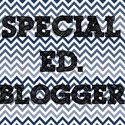Preschool Math Summer Ideas
July 15, 2016
 Preschooler, experiencing the world through play as they explore and learn with great enthusiasm. Giving preschoolers a solid foundation in early math literacy is critical to their future academic success, not to mention how important it is to their day-to-day functioning.
Preschooler, experiencing the world through play as they explore and learn with great enthusiasm. Giving preschoolers a solid foundation in early math literacy is critical to their future academic success, not to mention how important it is to their day-to-day functioning.
How preschoolers learn the many aspects of math
Most preschoolers, even without guidance from adults, are naturally interested in math as it exists in the world around them. They learn math best by engaging in dynamic, hands-on games and projects. Preschoolers love to ask questions and play games that involve the many aspects of math. The table below lists the key aspects of preschool math, along with simple games and activities you can use to help your child learn them.Math Games and Activities
- Count food items at snack time (e.g., 5 crackers, 20 raisins, 10 baby carrots)
- Use a calendar to count down the days to a birthday or special holiday. Help your child see the connection between a numeral like "5," the word "five," and five days on the calendar.
- Practice simple addition and subtraction using small toys and blocks.
- Play simple board games where your child moves a game piece from one position to the next.
- Have your child name the shapes of cookie cutters or blocks.
- Arrange cookie cutters in patterns on a cookie sheet or placemat. A simple pattern might be: star-circle-star-circle.
- Let your child help you measure ingredients for a simple recipe - preferably a favorite!
- Measure your child's height every month or so, showing how you use a yardstick or tape measure. Mark his or her height on a "growth chart" or a mark on a door frame. Do the same with any siblings. Help your child compare his or her own height to previous months and also to their siblings' heights.
- Talk through games and daily activities that involve math concepts.
- Have your child name numbers and shapes.
- Help them understand and express comparisons like more than/less than, bigger/smaller, and near/far.
- Play games where you direct your child to jump forward and back, to run far from you or stay nearby.
- Use songs with corresponding movements to teach concepts like in and out, up and down, and round and round.
Website Ideas
The Early Math Learning website (www. earlymathlearning.com) includes free downloads of PDF files of this Early Learning Math at Home booklet as well as individual chapters. Additonal articles and resources for families will be added regularly.
The California Mathematics Council maintains a For Families section at its website (www.cmc-math.org/family/main.html). Here you will find articles on mathematics education issues of interest to parents, hands-on activities to do at home, and information on how to host your own Family Math event at your preschool or education center.
The Math Forum (www.mathforum.org) is a web portal to everything “mathematics.” Here you can ask Dr. Math questions and get answers! You will also find weekly and monthly math challenges, Internet math hunts, and math resources organized by grade level.
Head Start–Early Childhood Learning and Knowledge Center (www.eclkc.ohs.acf.hhs.gov/hslc) is linked to the federal Head Start Program. Here you will find information about government programs for early learning, including resources that are available to families.
Thinkfinity (www.thinkfinity.org) is a project of the Verizon Foundation. This website has more than 55,000 resources—including many that focus on math—that have been screened by educators to ensure that content is accurate, up-to-date, unbiased, and appropriate for students. The resources on this website are grouped by grade level and subject area.
PBS Parents, the early education website of the Public Broadcasting Service (www.pbs.org/parents/education/math/activities), offers numerous resources, including the stages of mathematics learning listed for babies through second grade children. It is also a rich source of math activities to do at home
Math at Play (www.mathatplay.org) offers multimedia resources for anyone who works with children from birth to age five. Here you can explore early mathematical development and the important ways that caregivers nurture children’s understanding of math concepts through social-emotional relationships, language, everyday play experiences, materials, and teaching.
Let’s Read Math (www.letsreadmath.com/math-and-childrens-literature/ preschool/) wants to make parents and families aware of the growing body of children’s literature with themes related to mathematics. Here you will find a long annotated list of live links to preschool children’s books with math themes, listed by title, author, and mathematics topic.

Labels:math,parents,technology
Subscribe to:
Post Comments
(Atom)

About Me
Welcome to my all thing special education blog. I empower busy elementary special education teachers to use best practice strategies to achieve a data and evidence driven classroom community by sharing easy to use, engaging, unique approaches to small group reading and math. Thanks for Hopping By.
Resource Library
Thank you! You have successfully subscribed to our newsletter.
Search This Blog
Labels
21st Century
Autism
Bloom's Taxonomy
DIBELS
ELL strategies
Formative Assessment
Fountas and Pinnell
Guided Reading
IEP
Just Words
Progress monitoring
RTI
Reading Comprehension
Wilson Reading System
apps
back to school
beginning readers
best practices
books to read
classroom
common core
comprehension
data
differentiation
fluency
freebie
intervention
lesson plan
math
parents
phonics
reading
small group
special education
teaching
technology
vocabulary
writing












0 comments:
Post a Comment